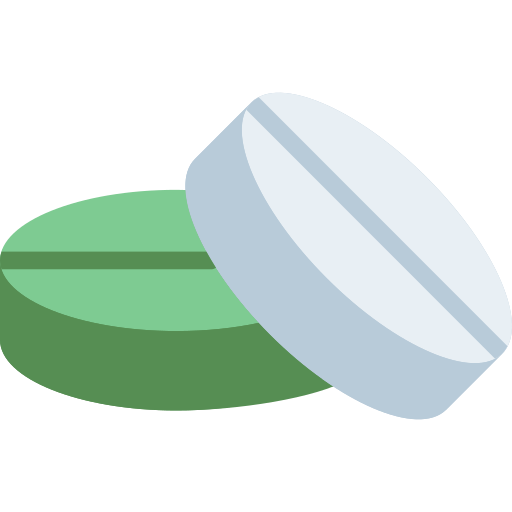
Product Details
Description
Sucralfate should be taken on an empty stomach. Antacid should not be administered within 30 minutes of Sucralfate.
Concomitant administration of Sucralfate may reduce the bioavailability of certain drugs including Fluoroquinolones such as Ciprofloxacin and Norfloxacin, Tetracycline, Ketoconazole, Sulpiride, Digoxin, Warfarin, Phenytoin, Theophylline, Levothyroxine, Quinidine, and H2 antagonists. The bioavailability of these agents may be restored by separating the administration of these agents from Sucralfate by two hours. This interaction appears to be non-systemic in origin presumably resulting from these agents being bound by Sucralfate in the gastrointestinal tract. Because of the potential of Sucralfate to alter the absorption of some drugs from the gastrointestinal tract, the separate administration of Sucralfate from that of other agents should be considered when alterations in bioavailability are felt to be critical for concomitantly administered drugs. Sucralfate should not be co-administered with citrate preparations. Co-administration citrate preparations with sucralfate may increase the blood concentrations of aluminium. The mechanism may be due to the chelation of aluminium which is assumed to increase its absorption. The administration of Sucralfate 1 g and enteral feeds by nasogastric tube should be separated by one hour in patients receiving Sucralfate 1 g for the prophylaxis of stress ulceration. In rare cases, bezoar formation has been reported when Sucralfate and enteral feeds have been given too closely together.
Sucralfate tablet and suspension are contraindicated in patients with hypersensitivity to sucralfate.
The most common adverse event was headache (3.4%) followed by nausea (2.3%), abdominal pain (2.3%), constipation (1.1%), diarrhea (1.1%), and urticaria (1.1%). The majority of patients who reported bezoars, had underlying medical conditions that may predispose to bezoar formation (such as delayed gastric emptying) or were receiving concomitant enteral tube feedings. Episodes of hyperglycemia have been reported in diabetic patient.
Safety in pregnant women has not been established and Sucralfate should be used during pregnancy only if clearly needed. It is not known whether this drug is excreted in human milk. Caution should be exercised when Sucralfate is administered to breast-feeding women.
Sucralfate should only be used with caution in patients with renal dysfunction, due to the possibility of increased aluminium absorption. Sucralfate is not recommended for use in individuals on dialysis. In patients with severe or chronic renal impairment, Sucralfate should be used with extreme caution and only for short-term treatment. Small amounts of aluminium are absorbed through the gastrointestinal tract and aluminium may accumulate. Aluminium osteodystrophy, osteomalacia, encephalopathy and anaemia have been reported in patients with chronic renal impairment. For patients with impairment of renal function, laboratory testing such as aluminium, phosphate, calcium and alkaline phosphatase is recommended to be periodically performed due to excretion impairment. The concomitant use of other aluminium containing medications is not recommended in view of the enhanced potential for aluminium absorption and toxicity. Bezoars have been reported after administration of sucralfate mainly to severely ill patients in intensive care units. The majority of these patients (including neonates in whom sucralfate is not recommended) had underlying conditions that may predispose to bezoar formation (such as delayed gastric emptying due to surgery, drug therapy or diseases that reduce motility) or were receiving concomitant enteral tube feeding.
Pediatric Population: Sucralfate is not recommended for use in children under 14 years of age due to insufficient data on safety and efficacy. In elderly patients: Dose adjustments are not necessary. Renal Impairment: Sucralfate should be used with caution in renal insufficiency patients. Effects on ability to drive and use machines: Patients should not be drive if feel dizzy or drowsy.
In a clinical trial on healthy men of overdose with Sucralfate, most cases remained asymptomatic but symptoms of abdominal pain, nausea, and vomiting were reported in a few cases. Acute oral toxicity studies in animals using doses up to 12 gm/kg body weight could not find a lethal dose. Risks associated with overdose should therefore be minimal.
-
Support 24/7
Call us anytime -
100% Safety
Only secure payments